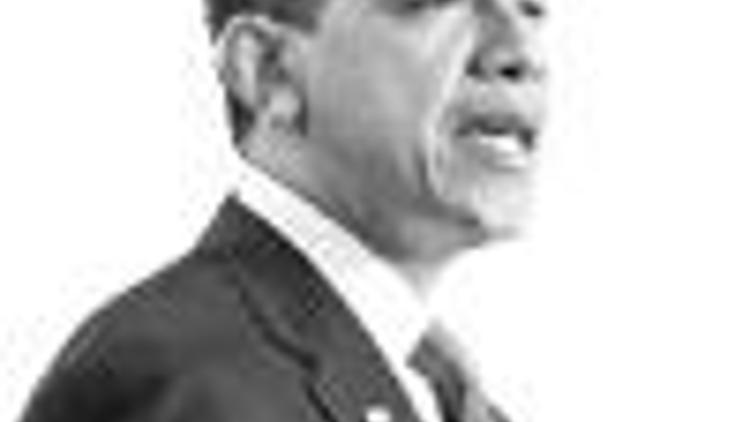In reversal, Obama seeks to block abuse photos
Güncelleme Tarihi:

WASHINGTON - President Barack Obama changes his stance on the release of photos depicting US soldiers abusing prisoners in an abrupt manner, as he says he will seek to block their release. While Obama defends himself saying the release will further arouse anti-American sentiment, his change of course has unleashed an intense criticism from different parties including liberals and human rights groups
U.S. President Barack Obama says he will try to block the court-ordered release of photos showing U.S. troops abusing prisoners, abruptly reversing his position out of concern the pictures would "further inflame anti-American opinion" and endanger U.S. forces in Iraq and Afghanistan.
Obama's turnabout Wednesday set off immediate reactions from bloggers, both liberals who decried that he was buckling to political pressure and conservatives who agreed with the decision but said it proved the president was a flip-flopper.
The White House had said last month it would not oppose the release of dozens of photos from military investigations of alleged misconduct. But American commanders in the war zones expressed deep concern about fresh damage the photos might do, especially as the U.S. tries to wind down the Iraq war and step up operations against the Taliban and al-Qaeda in Afghanistan.
When photos emerged in 2004 from the infamous U.S.-run Abu Ghraib prison in Iraq, showing grinning American soldiers posing with detainees, the pictures caused a huge anti-American backlash around the globe, particularly in the Muslim world.Obama, realizing how high emotions run on detainee treatment during the Bush administration and now, made it a point to personally explain his change of heart, stopping to address TV cameras late in the day as he left the White House for a flight to Arizona. He said the photos had already served their purpose in investigations of "a small number of individuals." Those cases were all concluded by 2004, and the president said "the individuals who were involved have been identified, and appropriate actions have been taken."
A blow to transparency
"This is not a situation in which the Pentagon has concealed or sought to justify inappropriate action," Obama said of the photos. "In fact, the most direct consequence of releasing them, I believe, would be to further inflame anti-American opinion and to put our troops in greater danger." The Justice Department immediately filed a notice with the court of its new position on the release, including that it was considering an appeal with the Supreme Court.
The government has until June 9 to do so. Obama said, "I want to emphasize that these photos that were requested in this case are not particularly sensational, especially when compared to the painful images that we remember from Abu Ghraib." Still, he said he had made it newly clear: "Any abuse of detainees is unacceptable. It is against our values. It endangers our security. It will not be tolerated."
The effort to keep the photos from becoming public represented for many a sharp reversal from Obama's repeated pledges for open government, and in particular from his promise to be forthcoming with information that courts have ruled should be publicly available. As such, it invited criticism from the more liberal segments of the Democratic Party, which want a full accounting for what they see as the misdeeds of Republican George W. Bush's administration. "The decision to not release the photographs makes a mockery of President Obama's promise of transparency and accountability," said American Civil Liberties Union attorney Amrit Singh, who had argued and won the case in question before the 2nd U.S. Circuit Court of Appeals in New York.
"It is essential that these photographs be released so that the public can examine for itself the full scale and scope of prisoner abuse that was conducted in its name." Human Rights Watch called the decision a blow to transparency and accountability. Republicans welcomed the change, however. A military group also said it was relieved. "These photos represent isolated incidents where the offending servicemen and women have already been prosecuted," said Brian Wise, executive director of Military Families United. The reactions were a reverse of what happened after Obama's decision last month to voluntarily release documents that detailed brutal interrogation techniques used by the CIA against terror suspects.
Those also came out in response to an ACLU lawsuit, and his decision then brought harsh and still-continuing criticism from Republicans. White House spokesman Robert Gibbs said the president instructed administration lawyers to challenge the photos' release based on national security implications. He said the argument was not used before in "the most effective" way. But the Bush administration already argued against the release on national security grounds - and lost. "It is plainly insufficient to claim that releasing documents could reasonably be expected to endanger some unspecified member of a group so vast as to encompass all United States troops, coalition forces, and civilians in Iraq and Afghanistan," the three-judge appeals panel wrote in September 2008.

